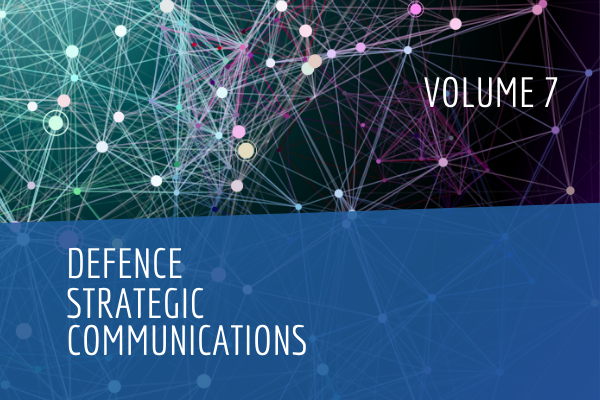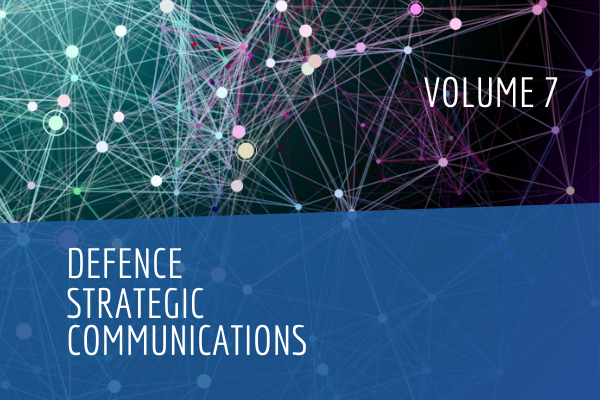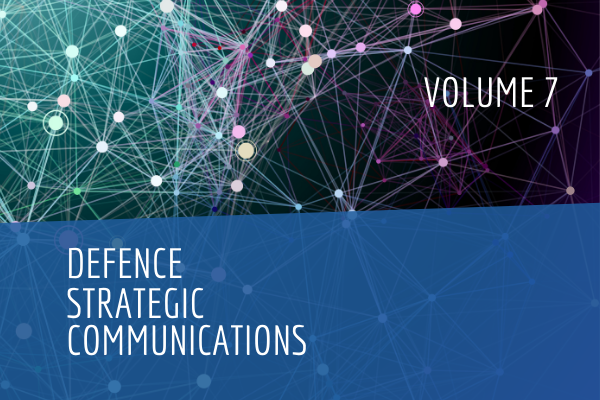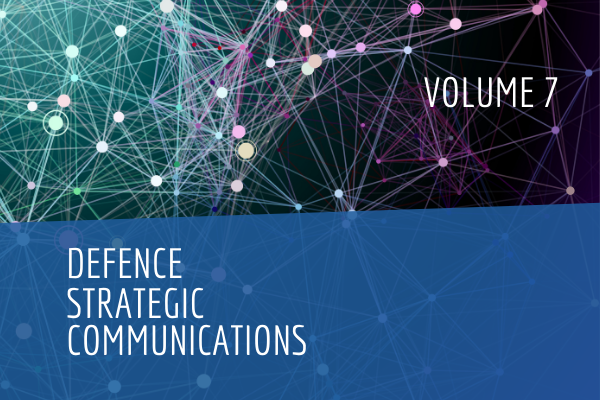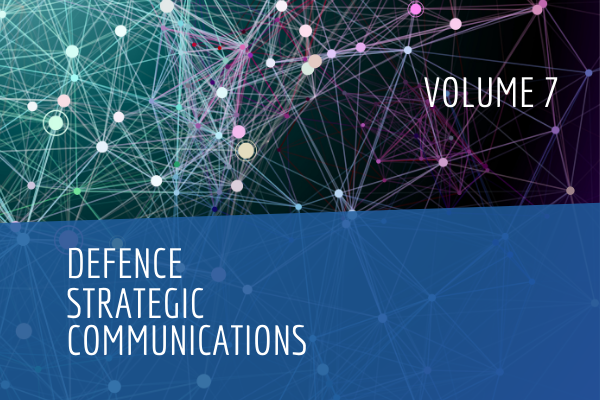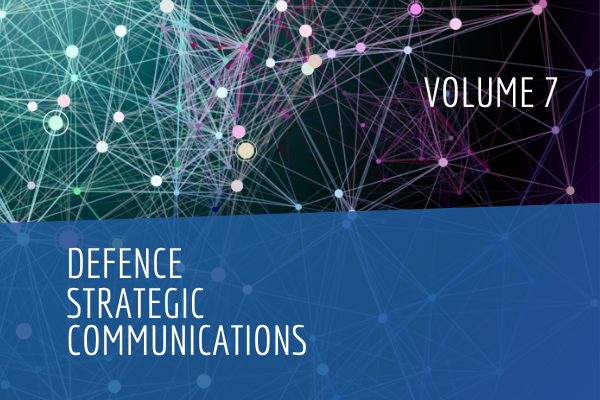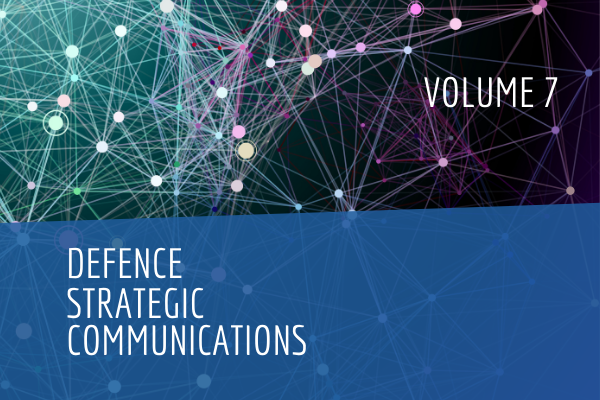Abstract
This article explores why economic sanctions are increasingly being used despite their ineffectiveness. It attempts to contribute to the theoretical debate surrounding strategic communications (SC) by suggesting a novel holistic approach, based on a neo-Gramscian reading of international political economy, followed by examining the case of Iran under sanctions as an illustration of theory in action. The Iranian case is most suitable for the analysis of SC for its recency, durability, eccentricity and dramatic character. The paper expands the analysis of strategic communications by considering the following dimensions: the strategic and constitutive realms of social power relations, the ethical backgrounds of SC and the normative and emancipatory power of strategic narratives in Iran. It concludes that the tactical inefficiency of SC with Iran can be explained by a failure of Western strategic communicators to understand the country’s socio-cultural constitutive, ethical and normative elements that reproduce the modalities of social behaviour.
Keywords—Sanctions, strategic communications, Iran, Gramsci, hegemony, grand strategy
About the Author:
Dr Ksenia Kirkham holds a PhD in International Political Economy from King’s College, London. She has published on the political economy of sanctions, the formation of the Eurasian Economic Union (EAEU), and the contradictions of the welfare state.
Bibliography
Ashley, Richard K., ‘Political Realism and Human Interests’, International Studies Quarterly, 25.2 (1981), 204–36
Axworthy, Michael, Revolutionary Iran : A History of the Islamic Republic (London: Penguin Books, 2014)
Bahramitash, Roksana, ‘Islamic Fundamentalism and Women’s Economic Role: The Case of Iran’, International Journal of Politics, Culture, and Society, 16.4 (2003), 551–68
Bastani, Hossein, ‘How Powerful Is Rouhani in the Islamic Republic?’, Chatham House, 2014 <https://www.chathamhouse.org/publication/how-powerful-rouhani-islamic-republic> [accessed 16 September 2019]
Behnam, Jamshid, ‘Iranian Society, Modernity, and Globalization’, in Iran Between Tradition and Modernity., ed. by Ramin. Jahanbegloo (Lanham: Lexington Books, 2004), pp. 25–34
Beiser, Frederick, Hegel (New York: Routledge, 2005)
Bolt, Neville, ‘Foreword’, Defence Strategic Communications, 5.Autumn (2018), 3–11
———, ‘Foreword’, Defence Strategic Communications, Spring.6 (2019), 4–5
———, ‘Strategic Communications in Crisis’, The RUSI Journal, 156.4 (2011), 44–53 <https://doi.org/10.1080/03071847.2011.606649>
Bolt, Neville, and Leonie Haiden, ‘Improving NATO Strategic Communications Terminology’, 2019 <https://www.stratcomcoe.org/improving-nato-strategic-communications-terminology> [accessed 30 October 2019]
Boroumand, Ladan, ‘Iran’s 2017 Election: Waning Democratic Hopes’, Journal of Democracy, 28.4 (2017), 38–45
Bozorgmehr, Najmeh, ‘“State” Bodies Stymie Iran Privatisations’, Financial Times, 2012 <https://www.ft.com/content/1a092ed4-aa38-11e1-8b9d- 00144feabdc0> [accessed 14 September 2019]
Brumberg, Daniel, and Farideh Farhi, ‘Introduction: Politics of COntention and Conciliation in Iran’s Semiautocracy’, in Power and Change in Iran Politics of Contention and Conciliation, ed. by Daniel Brumberg and Farideh Farhi (Bloomington, IN: Indiana UP, 2016), pp. 1–36
Cafruny, Alan, and Ksenia Kirkham, ‘EU “Sovereignty” in Global Governance: The Case of Sanctions’, in Global Governance in Transformation: Challenges and Opportunities for International Cooperation, ed. by Adrian Pabst and Leonid Grigoriev (Cham: Springer, 2020), pp. 89–104
Chan, Steve, ‘In Search of Democratic Peace: Problems and Promise’, Mershon Inernational Studies Review, 41.1 (1997), 59–91 <doi:10.2307/222803>
———, ‘Strategic Anticipation and Adjustment: Ex Ante and Ex Post Information in Explaining Sanctions Outcomes’, International Political Science Review, 30.3 (2009), 319–38
Chang, Ha Joon, ‘Kicking Away the Ladder: Infant Industry Promotion in Historical Perspective’, Oxford Development Studies, 31.1 (2003), 21–32 <https://doi.org/10.1080/1360081032000047168>
Cox, Robert W., Production, Power, and World Order. Social Forces in the Making of History (New York: Columbia University Press, 1987)
Cronberg, Tarja, ‘No EU, No Iran Deal: The EU’s Choice between Multilateralism and the Transatlantic Link’, The Nonproliferation Review, 24.3–4 (2018), 243–59 <https://doi.org/10.1080/10736700.2018.1432321>
Dennis, George T, Three Byzantine Military Treatises (Washington, D.C.: Dumbarton Oaks, 1985)
Duncombe, Constance, ‘Twitter and Transformative Diplomacy: Social Media and Iran–US Relations’, International Affairs, 93.3 (2017), 545–62
Farzanegan, Mohammad Reza, ‘Effects of International Financial and Energy Sanctions on Iran’s Informal Economy’, SAIS Review, 2013 <https:// doi.org/10.1353/sais.2013.0008>
Fayazmanesh, Sasan, ‘The US Sanctions Are Affecting All Aspects of Human Life in Iran’, 2019 <https://www.newcoldwar.org/the-us-sanctions-are-affecting-all-aspects-of-human-life-in-iran/%0A> [accessed 14 September 2019]
Forozan, Hesam, and Afshin Shahi, ‘The Military and the State in Iran: The Economic Rise of the Revolutionary Guards’, Middle East Journal, 71.1 (2017)
Freedman, Lawrence, ‘Chapter Five, Strategic Communications’, Adelphi Papers, 45.379 (2006), 73–93
———, ‘Introduction’, Adelphi Papers, 45.379 (2006), 5–10 <https://doi. org/10.1080/05679320600661624>
———, ‘Networks, Culture and Narratives’, Adelphi Papers, 45.379 (2016), 11–26
———, Strategy: A History (Oxford: Oxford University Press, 2013)
Friedman, Ofer, Russian ’hybrid Warfare’ : Resurgence and Politicisation (London: Hurst & Company, 2018)
Golkar, Saeid, ‘Cultural Heterogeneity in Post-Revolutionary Iran’, Policy Notes 50, 2018 <https://www.washingtoninstitute.org/policy-analysis/ view/cultural-heterogeneity-in-post-revolutionary-iran> [accessed 16 September 2019]
———, ‘Paramilitarization of the Economy: The Case of Iran’s Basij Militia’, Armed Forces & Society, 38.4 (2012), 625–48
Gramsci, Antonio, ‘The Modern Prince’ Selections from the Prison Notebooks (London: Lawrence and Wishart, 1971)
Habermas, Jürgen, Justification and Application: Remarks on Discourse Ethics (Cambridge: Polity, 1995)
Haji-Yousefi, Amir Mohammad, ‘Political Culture and Iran’s Foreign Policy: A Comparative Study of Iran’s Foreign Policy during Ahmadinejad and Rouhani’, Journal of World Sociopolitical Studies, 2.2 (2018), 225–45
Harris, Kevan, ‘Social Welfare Policies and the Dynamics of Elite and Popular Contention’, in Power and Change in Iran Politics of Contention and Conciliation, ed. by Daniel Brumberg and Farideh Farhi (Bloomington, IN: Indiana UP, 2016), pp. 70–100
———, ‘The Rise of the Subcontractor State: Politics of Pseudo-Privatization in the Islamic Republic of Iran’, Middle East Studies, 45 (2013), 45–70
Hartwick, Elaine, and Richard Peet, Theories of Development: Contentions, Arguments, Alternatives, 2nd edn (New York: Guilford Press, 2009)
Hegel, Georg Wilhelm Friedrich, The Philosophy of Right, 1886, ed. by Translated by S.W Dyde (Kitchener, Ontario: Batoche Books, 2001)
Heuser, Beatrice, The Evolution of Strategy Thinking War from Antiquity to the Present (Cambridge: Cambridge University Press, 2010)
Hufbauer, Gary Clyde, and Barbara Oegg, ‘Beyond the Nation-State: Privatization of Economic Sanctions’, Middle East Policy, 10.2 (2003), 126–34 <https://doi.org/10.1111/1475-4967.00111>
Jessop, B, The Capitalist State - Marxist Theories and Methods -, International Journal of the Sociology of Law (Martin Robertson & Company Ltd, 1982), xi <https://doi.org/10.2307/2069563>
Jones, Lee, Societies Under Siege: Exploring How International Economic Sanctions (Do Not) Work (Oxford University Press, 2015)
Joshanloo, Mohsen, and Fatemeh Daemi, ‘Self-Esteem Mediates the Relationship between Spirituality and Subjective Well-Being in Iran’, International Journal of Psychology, 50.2 (2015), 115–20
Kara-Murza, Serguei, ‘The Methaphysical and Rational Foundations of Industrialism’, 1994 <http://skaramurza.chat.ru/engl-2.html> [accessed 12 September 2019]
Katasonov, Valentin, Stalinskiy Otvet Na Sankcii Zapada: Economiceskiy Blizkrig Protiv Rossii (Moscow: Knijnyi Mir, 2015)
Kebriaeezadeh, Abbas, ‘U.S. Sanctions Are Killing Cancer Patients in Iran’, Foreign Policy, 2019 <https://foreignpolicy.com/2019/08/14/u-s-sanctions-are-killing-cancer-patients-in-iran/> [accessed 5 September 2019]
Khalili-Tari, Daniel, ‘The Independent: Four Decades on, This Is What People Still Don’t Understand about the Iranian Revolution’, 2019 <https:// www.independent.co.uk/news/iran-revolution-40-years-ayatollah-khomeini-islam-shah-a8777261.html> [accessed 15 September 2019]
Khatami, Mohammad, Islam Liberty and Development (Binghamton, NY: Global Publications, 1998)
Kirkham, Ksenia., ‘The Formation of the Eurasian Economic Union: How Successful Is the Russian Regional Hegemony?’, Journal of Eurasian Studies, 7.2 (2016), 111–28 <https://doi.org/10.1016/j.euras.2015.06.002>
Mehran, Golnar, ‘Khatami, Political Reform and Education in Iran’, Comparative Education, 39.3 (2003), 311–29
Mohseni, Payam, ‘Factionalism, Privatization, and the Political Economy of Regime Transformation’, in Power and Change in Iran Politics of Contention and Conciliation, ed. by Daniel Brumberg and Farideh Farhi (Bloomington, IN: Indiana UP, 2016), pp. 37–69
Morgan, T Clifton, Valerie L Schwebach, and T Clifton Morgan, ‘Economic Sanctions as an Instrument of Foreign Policy : The Role of Domestic Politics Printed in Malaysia AN INSTRUMENT OF FOREIGN POLICY ’:, 0629 (2008) <https://doi.org/10.1080/03050629508434868>
Morton, Adam David, Unravelling Gramsci. Hegemony and the Passive Revolution in the Global Political Economy (London: Pluto Press, 2007)
Mosca 1895/, Gaetano, The Ruling Class, ed. by A. Livingston (New York: McGraw-Hill, 1939)
Nye, Joseph S., The Future of Power (New York: Public Affairs, 2011)
Offe, Claus, Contradictions of the Welfare State (Cambridge: The MIT Press, 1985)
Paul, Crhistopher, Strategic Communication: Origins, Concepts, and Current Debates. (Westport: Praeger Security International, 2011)
Pieper, Moritz, ‘The Transatlantic Dialogue on Iran: The European Subaltern and Hegemonic Constraints in the Implementation of the 2015 Nuclear Agreement with Iran’, European Security, 26.1 (2017), 99–119
van der Pijl, Kees, Global Rivalries From the Cold War to Iraq (London: Pluto Press, 2006)
———, ‘Is the East Still Red? The Contender State and Class Struggles in China’, Globalizations, 9.4 (2012), 503–16 <https://doi.org/10.1080/14 747731.2012.699921>
Poulantzas, Nicos, Classes in Contemporary Capitalism, London: New Left Books (London: New Left Books, 1974)
Price, Monroe Edwin, ‘Information Asymmetries and Their Challenge’, International Media and Communication, 4.2 (2016), 46–54
Reus-Smit, Christian, ‘Constructivism’, in Theories of International Relations, ed. by J. Burchill, S. Linklater, A., Devetak, R., Don- nelly, J., Nardin, T., Paterson, M., True, 4th edn (New York: Palgrave Macmillan, 2009), pp. 212–36
Rezai-Rashti, Goli M., and Valentine M. Moghadam, ‘Women and Higher Education in Iran: What Are the Implications for Employment and the “Marriage Market”?’, International Review of Education, 57.3–4 (2011), 419–41
Salazar-Volkmann, Christian, ‘The Everyday Environments of Children’s Poverty’, Children, Youth and Environments, 19.2 (2009), 250–71
Simbar, Reza, ‘Iran, Democracy and International Community’, Journal of International and Area Studies, 14.1 (2007), 55–66
TehranTimes, ‘Rouhani Declares Amended Law on Article 44 of Iran’s Constitution’, 2018 <https://www.tehrantimes.com/news/425932/ Rouhani-declares-amended-law-on-Article-44-of-Iran-s-Constitution> [accessed 16 September 2019]
The Associated Press, ‘Some World Hot Spots See Possible Openings in Bolton Firing, September 12’, 2019 <https://www.apnews.com/ a12d5ceb2c6e4e75900c669aef2b1049> [accessed 15 September 2019]
